Hemp seeds are a nutritional dark horse in the world of seeds. While they’re packed with healthy nutrients and can contribute flavor and texture to dozens of different dishes, most people don’t view them as a pantry staple. This article aims to change that!
When you think of hemp and hemp seeds, what comes to mind? For a lot of people, it’s marijuana. But the truth is, hemp — unlike its close cousin, marijuana — can’t get you high. It lacks sufficient THC (short for tetrahydrocannabinol), the active, natural compound found in the cannabis plant that produces the dominant psychoactive effects of marijuana.
While not a consciousness altering drug, hemp more than makes up for it through its sheer usefulness. Various parts of the plant are used as material for fibers, textiles, paper, insulation, cosmetic products, biodegradable plastics, food, and beverages. And it’s been an important global crop for a long time. Even the US Declaration of Independence was drafted on hemp paper!
Until the Farm Bill of 2018, it was illegal to grow hemp in the United States, so most hemp seed and related hemp products were imported from Canada and other countries. As of today, cultivating hemp is legal in all US states and Canada, with the exception of Idaho, Mississippi, and the District of Columbia (Washington DC).
Hemp seeds may not be as popular as flaxseeds, chia seeds, pumpkin seeds, and sunflower seeds, but as you’ll learn below, they’re tremendously healthy and full of nutrition. And they’re darn tasty, too!
What is Hemp?
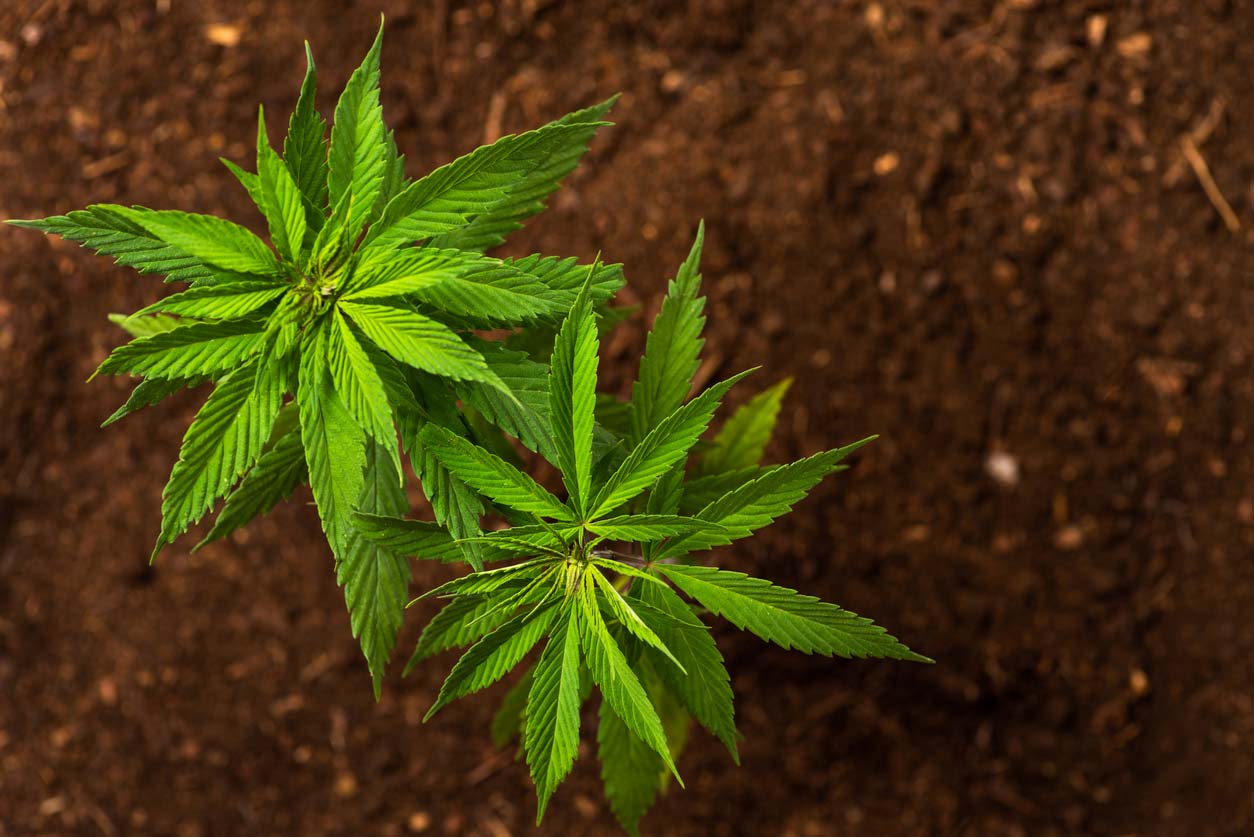
Hemp (Cannabis sativa L.) is a plant grown in the northern hemisphere, best known for its thin, somewhat spiky, green leaves (usually around seven that fan out around the end of each stem). It takes approximately three to four months to mature before harvesting. And it is a dioecious plant, which is a decidedly nerdy way of saying that there are both male and female hemp plants. And they need each other for the female to set seed.
Hemp has a wide variety of uses. You can use the whole plant, including the fiber (from its stems), protein (from its seeds), and oils and smokable portions (from the leaves and flowers). Smokable hemp is a new addition to the CBD industry, as the leaves and flowers of the hemp plant are rich in non-psychoactive cannabidiol, a compound which has many therapeutic properties.
Hemp seeds are small with a slightly sweet and nutty flavor and are technically nuts. While the terms are often used interchangeably, hemp “hearts” are hemp seeds that have had their shell removed, so they’re easier to consume. Hemp hearts are round and have a whitish-green hue with a black center.
Hemp is environmentally friendly, too. It grows in a variety of climates and types of soil, which is possible because of its hardiness. Hemp is resistant to drought and damage from UV rays, as well as most pests. It’s happy to grow tightly packed together, which allows it to shade out and outcompete most weeds. That means there’s no point in using chemical pesticides on most hemp crops. It’s also a natural substitute for cotton and wood fiber, both of which take a heavy toll on the environment. Hemp has a low lignin content, which allows it to be pulped using fewer chemicals than wood. And a fully mature hemp plant may contain half of its dry weight in seed, which is an impressively high yield.
Is Hemp the Same as Marijuana?
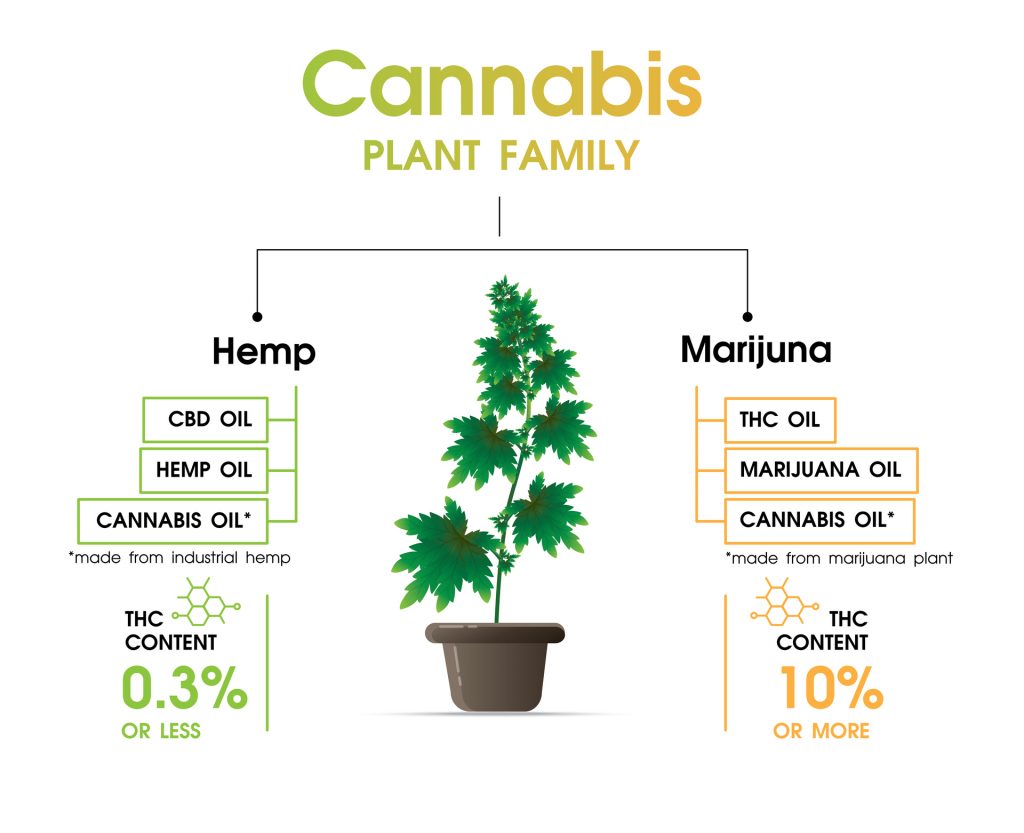
Hemp was a prominent crop in the United States until 1937, when the Marihuana Tax Act (and no, that isn’t a misspelling; historically, the H or a J spellings are used interchangeably in US legislature) virtually destroyed the industry in North America. This was based on an erroneous fear that industrial hemp was the same as marijuana. The economic, environmental, and humanitarian damage wrought over those years are profoundly tragic.
While hemp is part of the same family as marijuana — Cannabis sativa — it’s not the same as marijuana. To clarify, both hemp and marijuana are cannabis, but they differ in their THC content. In the United States and many other nations, marijuana is still a federally-controlled substance, though many states are loosening restrictions on its possession and use. This is, in large part, due to documented value for medical uses in alleviating pain, nausea, and anxiety. Hemp has significantly lower THC levels and doesn’t have the same psychoactive effect that marijuana does. In other words, you won’t get high from consuming hemp or using hemp products.
While it’s still illegal for individuals to grow or possess marijuana in most US states, the 2018 Farm Bill removed hemp from the Controlled Substance Act and recategorized it as an agricultural product, as it was prior to 1937. The 2018 Farm Bill legalized hemp under certain restrictions, like not having a delta-9 THC concentration of over 0.3% on a dry weight basis. Marijuana, on the other hand, has a much wider range of THC content, as high as 23%. But to be legally classified in the same boat as marijuana, hemp has to have a THC concentration of over 0.3%.
Hemp Seeds Nutritional Makeup
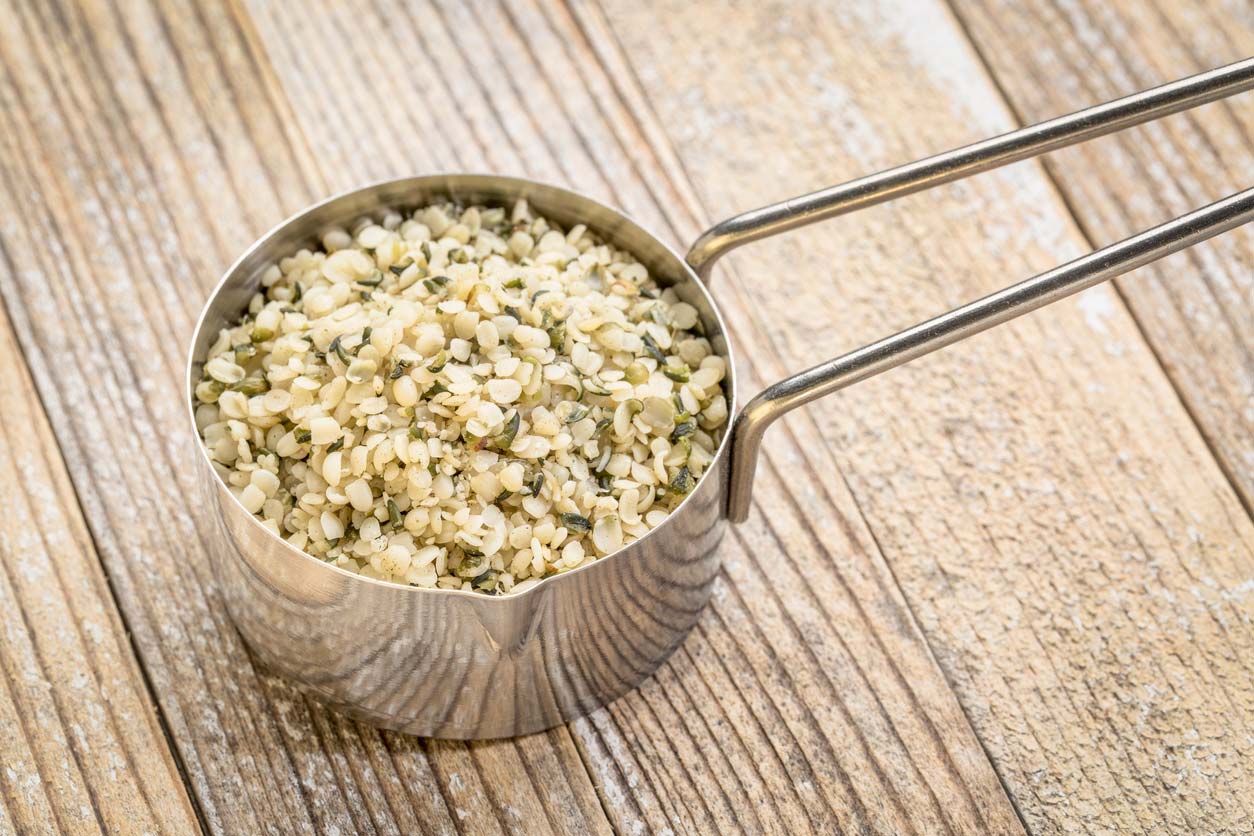
Hemp seeds are very nutrient-dense. Just three tablespoons of hemp seeds, weighing in at 30 grams, offers the following nutritional composition:
- 170 calories
- 9 grams protein
- 15 grams fat
- 3 grams total carbohydrates
- 1 gram fiber
- 14 mg calcium
- 2 mg iron
- 215 mg magnesium
- 290 mg phosphorus
- 360 mg potassium
- 4 mg zinc
Hemp seeds also contain some vitamin A, B, C, and E, unsaturated fatty acids (ranging from a healthy 2:1 to 3:1 omega-6 to omega-3 ratio), essential amino acids, and phytochemicals.
6 Health Benefits of Hemp Seeds
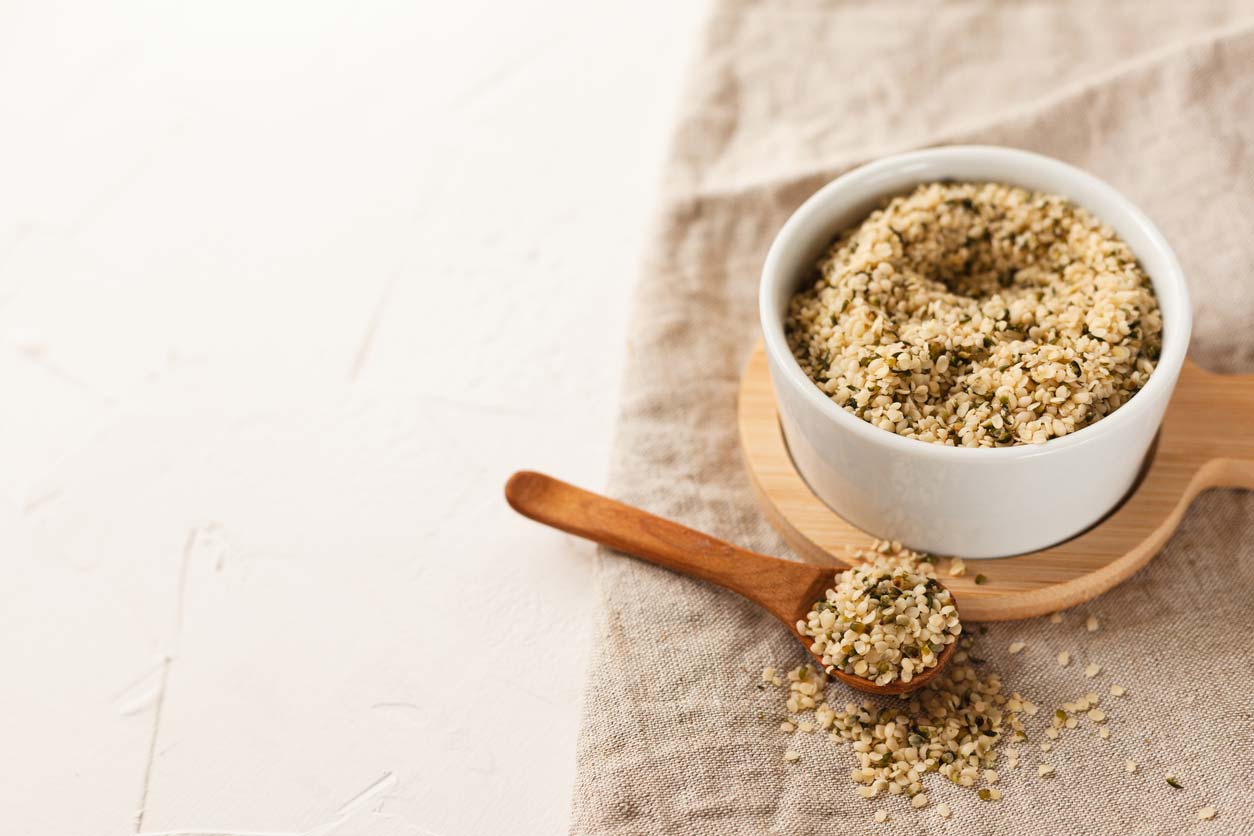
Unfortunately, there’s very little scientific research available on the benefits of hemp seeds because of the history of its legal status, and the confusion around that. However, we do know that hemp seeds can be:
Good for Digestion
A three tablespoon serving of hemp seeds provides one gram of dietary fiber. Fiber feeds the good bacteria in your gut microbiome. Why does this matter? Evidence shows that much of our overall health outcomes, including immune function, starts in the gut. Fiber also helps prevent and alleviate constipation, promoting bowel regularity.
Helpful in Lowering Risk for Chronic Disease
Hemp seeds are rich in antioxidants — compounds that fight the free radicals that can lead to oxidative stress and, ultimately, chronic diseases like heart disease, cancer, type 2 diabetes, and dementia. Oxidative stress also speeds the aging process.
Protective Against Neurodegenerative Disease
It’s unfortunately common for many people to experience cognitive breakdown as part of the aging process, but evidence shows that dietary factors may slow or help prevent this development. Two animal studies found that hemp seeds had a protective effect against cognitive decline and brain inflammation. This is likely related to the amount of polyunsaturated fatty acids (PUFAs) found naturally in hemp.
Good for Your Heart
Incorporating hemp seeds into your diet may benefit your heart health. Studies show that PUFA-rich hemp can help prevent arterial blockages by lowering cholesterol levels, protecting the heart after a cardiac event, and lowering high blood pressure, a major risk factor for heart disease.
Beneficial for Your Skin
Some studies indicate that topical application of hemp oil may improve certain skin conditions. Hemp seed oil has been useful in treating eczema, dermatitis, psoriasis, and acne rosacea, as well as cradle cap in babies. Researchers think this is because hemp oil improves the strength of the skin as well as its resistance to bacteria, fungi, and viruses that can cause irritation and infection.
A Good Source of Plant-Based Protein
With nine grams of protein in just three tablespoons, hemp hearts are a tasty way to boost your plant-based protein intake. Studies show that a diet rich in plant-derived protein can protect against chronic degenerative diseases, as compared to animal-derived protein, which can cause chronic degenerative diseases.
Side Effects of Hemp Seeds
While hemp seeds offer numerous health benefits, there are also a few things to consider if you’re adding them to your diet for the first time.
Some people complain of diarrhea or upset stomach when first consuming hemp seeds. If you have that experience, try a smaller amount to begin with and see how that works for you.
It’s also possible that hemp seeds could interact with certain drugs. They’re known to inhibit platelet formation, preventing blood clots, which could potentiate anticoagulant medications like warfarin. Hemp seeds and diuretics can both lead to a loss of potassium, so taking diuretics and hemp together could lead to dangerously low potassium levels, which could adversely affect your heart. Lastly, hemp may naturally contain compounds that slow the heartbeat, which could interfere with medications used to treat irregular heart rhythm, like digoxin and other cardiac glycosides. As with any new dietary change, it’s a good idea to speak with your health care provider regarding any potential concerns regarding medications.
How to Store Hemp Seeds
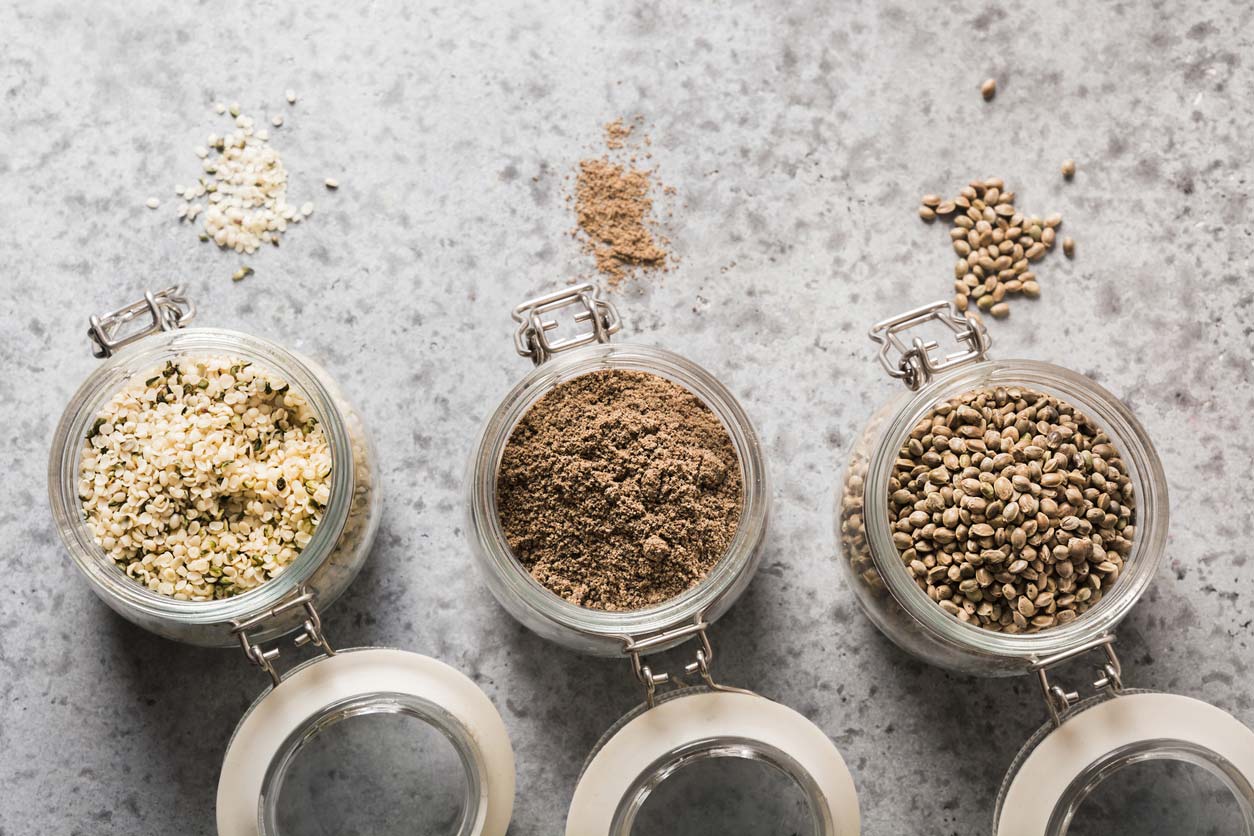
To help your hemp seeds stay fresh for as long as possible, make sure you store them properly. Unopened, you can store them in the pantry. However, I’ve found that it’s even better to store them in the fridge or freezer if you aren’t planning to eat them within a few months. The cool temperature helps to preserve their natural oils and keep them from going rancid.
Once you’ve opened the bag, hemp seeds should go in the fridge or freezer regardless. If they didn’t come in a resealable container, transfer them to an airtight glass container to extend shelf life. After they’ve been opened, you can expect hemp seeds to last for about a year if kept in the fridge or freezer. But as you’ll see, they’re so good and versatile, you won’t have to worry about their freezer shelf life.
How to Eat Hemp Seeds
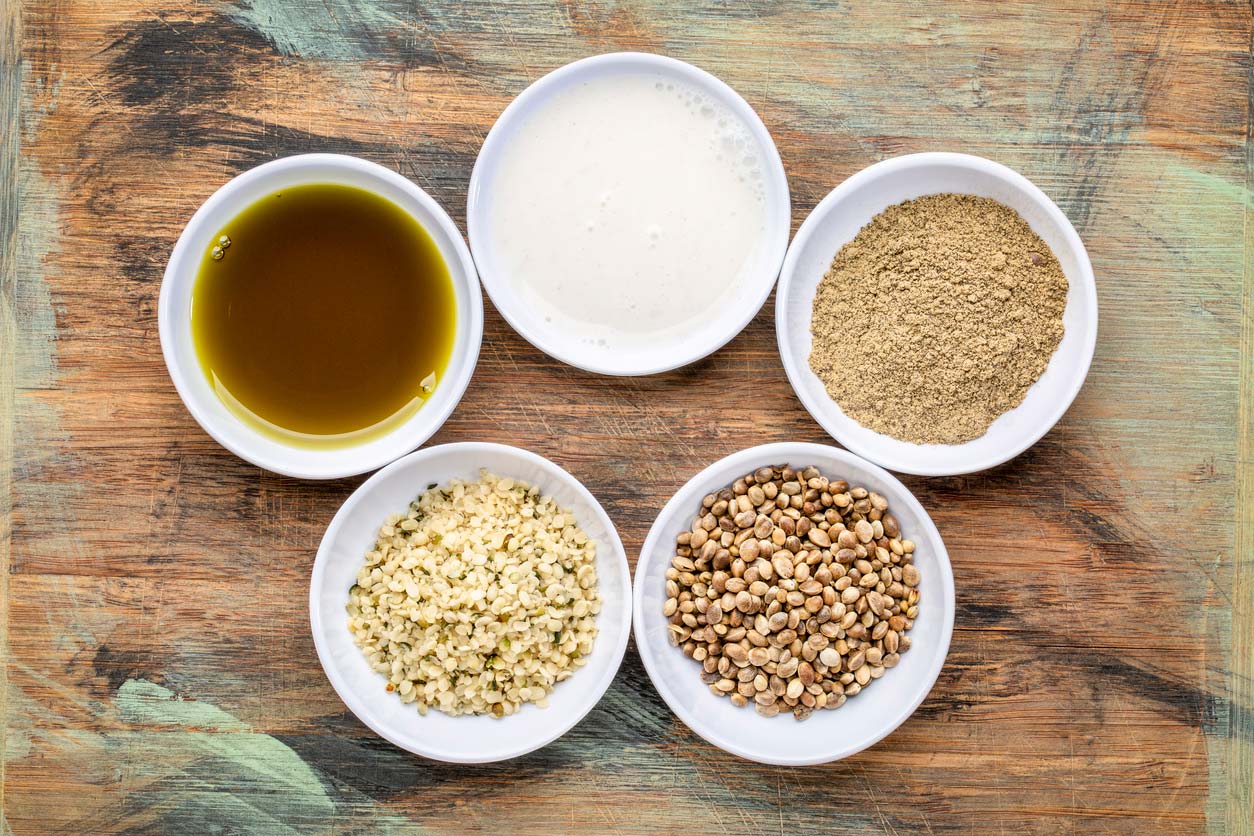
Hemp seeds add crunch and nutrition to just about any dish. They get along with everyone. You can sprinkle them over almost anything, and they’ll taste good — whether it’s oatmeal, plant-based yogurts, salads, casseroles, or enchiladas. They blend well into smoothies or on top of smoothie bowls. I’ve even added them to baked goods, like muffins, or topped pancakes and waffles with them. And if you’re gluten-free, you can use hemp seeds in place of breadcrumbs in many recipes.
Hemp Seed Products
Whole hemp seeds or hemp hearts are the most nutritious ways to eat hemp, but there are also hemp seed products that can work for various things. For instance, hemp milk — made from hulled hemp seeds and water — can be found in most plant-based milk sections. Choose unsweetened varieties whenever available, as many commercial hemp milks are highly sweetened and may have flavorings added to them. Or with a good blender or plant milk maker like the Almond Cow, you can make your own at home.
Hemp granola is popular in the breakfast aisle, though as with all packaged cereals, watch out for excess sugar. Hemp oil contains an assortment of fatty acids and beneficial bioactive compounds, but as with all bottled oils, it’s a refined product. There are also protein powders made from hemp seeds. Hemp is a good source of plant-based protein, and makes a fine base for performance powders. But instead of extracting the oil and the protein out of hemp and selling them separately, why not eat the full seed to get the healthy fats, protein, fiber, and other nutrients they contain all together, as nature intended?
Preparing Hemp Seeds
If you end up buying whole (unshelled) hemp seeds, there are a couple of things you can do to prepare them for eating. One option is to toast them over dry heat. To do this, spread the seeds in a skillet and heat over medium temperature for approximately two minutes, shaking or stirring them regularly. Alternatively, you can remove the hemp seed shells yourself. Do this by laying them on a flat surface, covering with a towel, and running a rolling pin over the seeds to crush them. Scoop the seeds into a pot of water, give them a stir, and allow the shells to float to the top where you can skim them off and remove them, leaving the hemp hearts.
Recipes Using Hemp Seeds & Related Hemp Products
Hemp is a mild, highly versatile food that takes on a number of flavors. Here are a few recipes you might enjoy that use hemp and hemp-derived ingredients.
1. Balsamic Dijon Hemp Vinaigrette
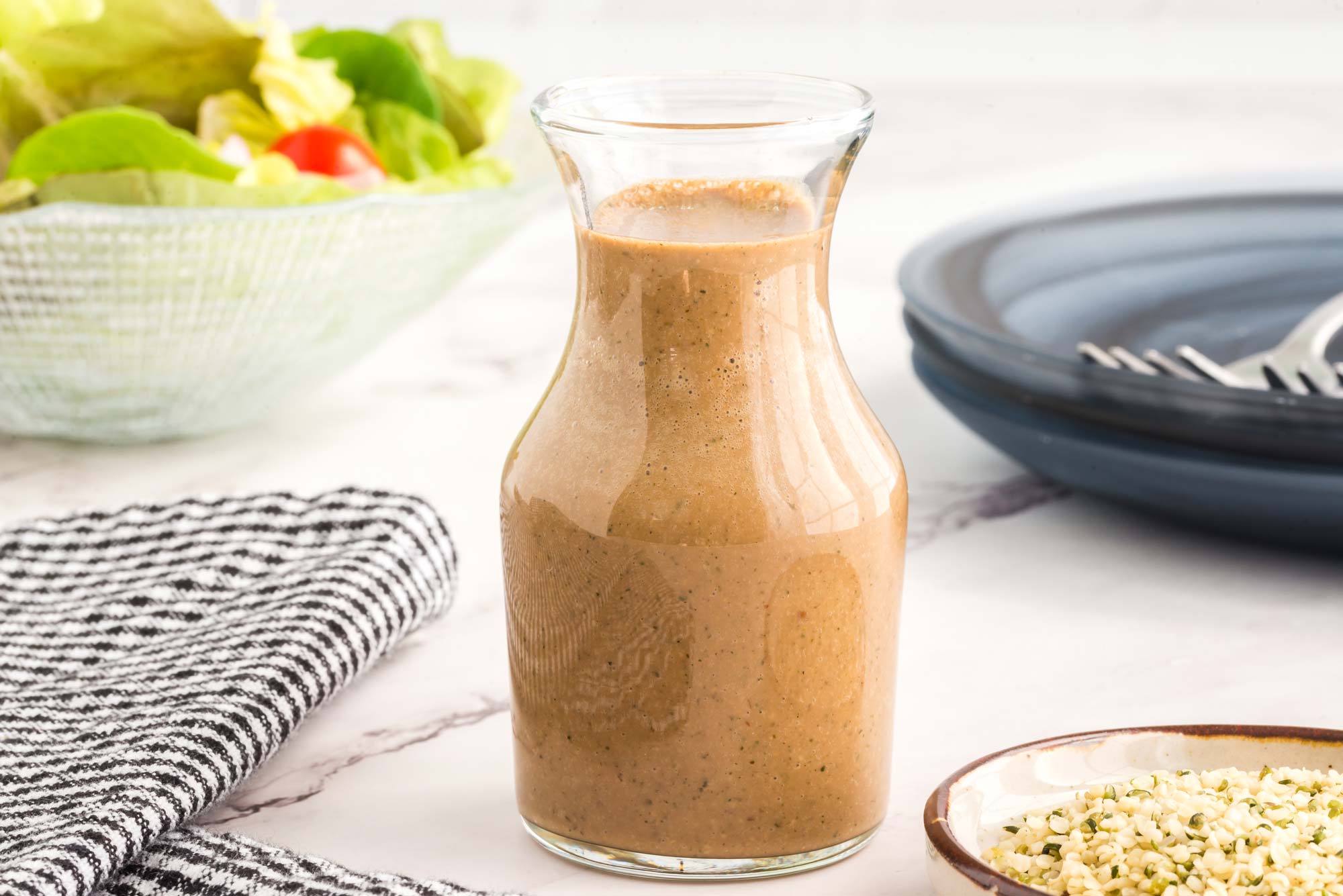
Creamy, delicious, AND nutritious, hemp seeds lend to a rich texture — not to mention they’re packed with plant-based protein and minerals like zinc and iron. Pour this dressing on salads, use it in grain bowls, include it in a lettuce wrap, or add it to a sandwich. It’s delicious nutrition in a bottle!
2. Cacao Banana Sprout Smoothie
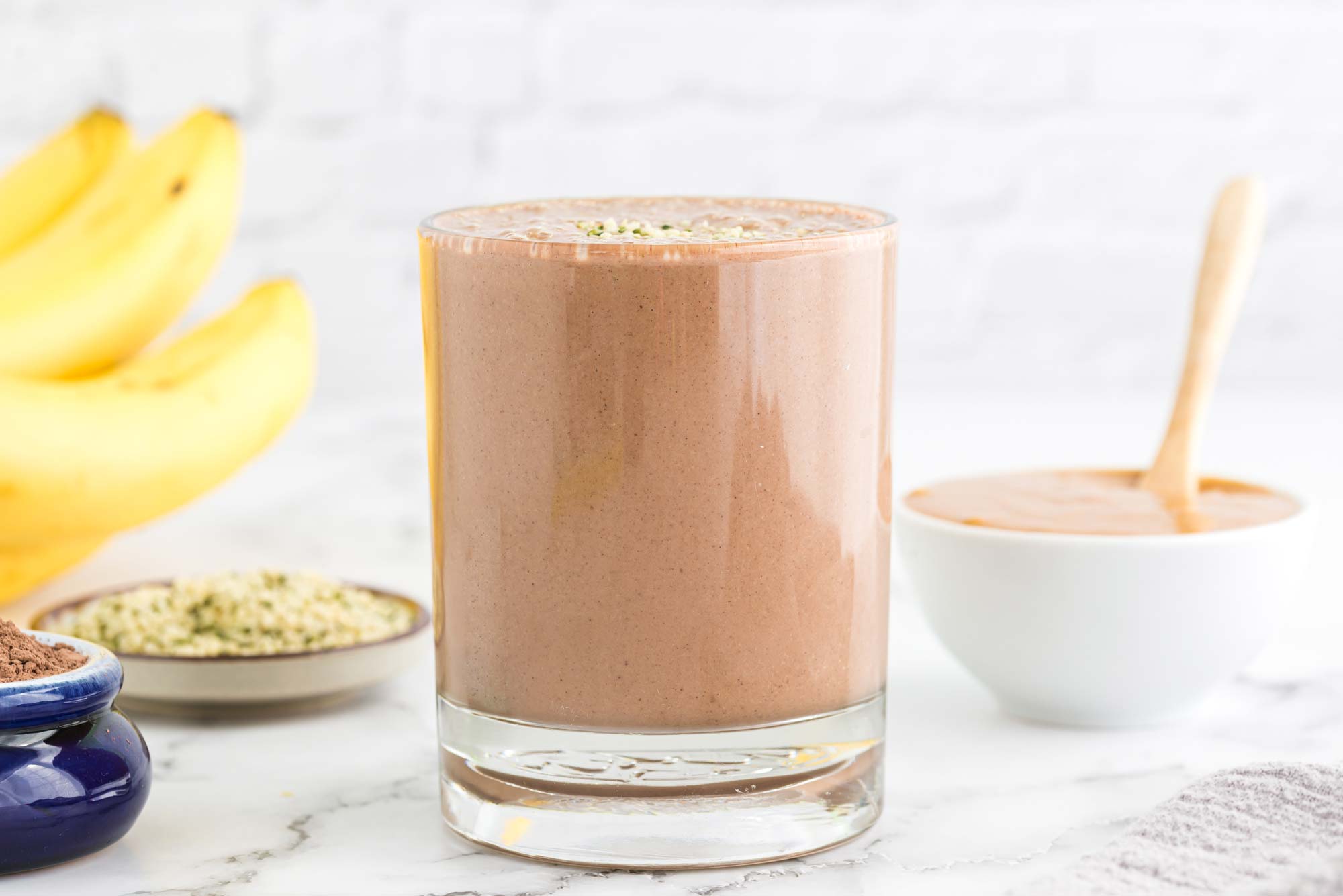
Do you love smoothies as a natural way to boost your plant-based protein intake, but don’t love protein powder that often accompanies smoothie recipes? Then, you’re in luck! Hemp seeds not only offer essential minerals like calcium, iron, and zinc, but they’re a tasty way to boost protein in a smoothie. By adding whole hemp seeds in place of processed powders, you’ll optimize nutrition without sacrificing the extra protein.
3. Garlicky Cheesy Hemp Seed Spread
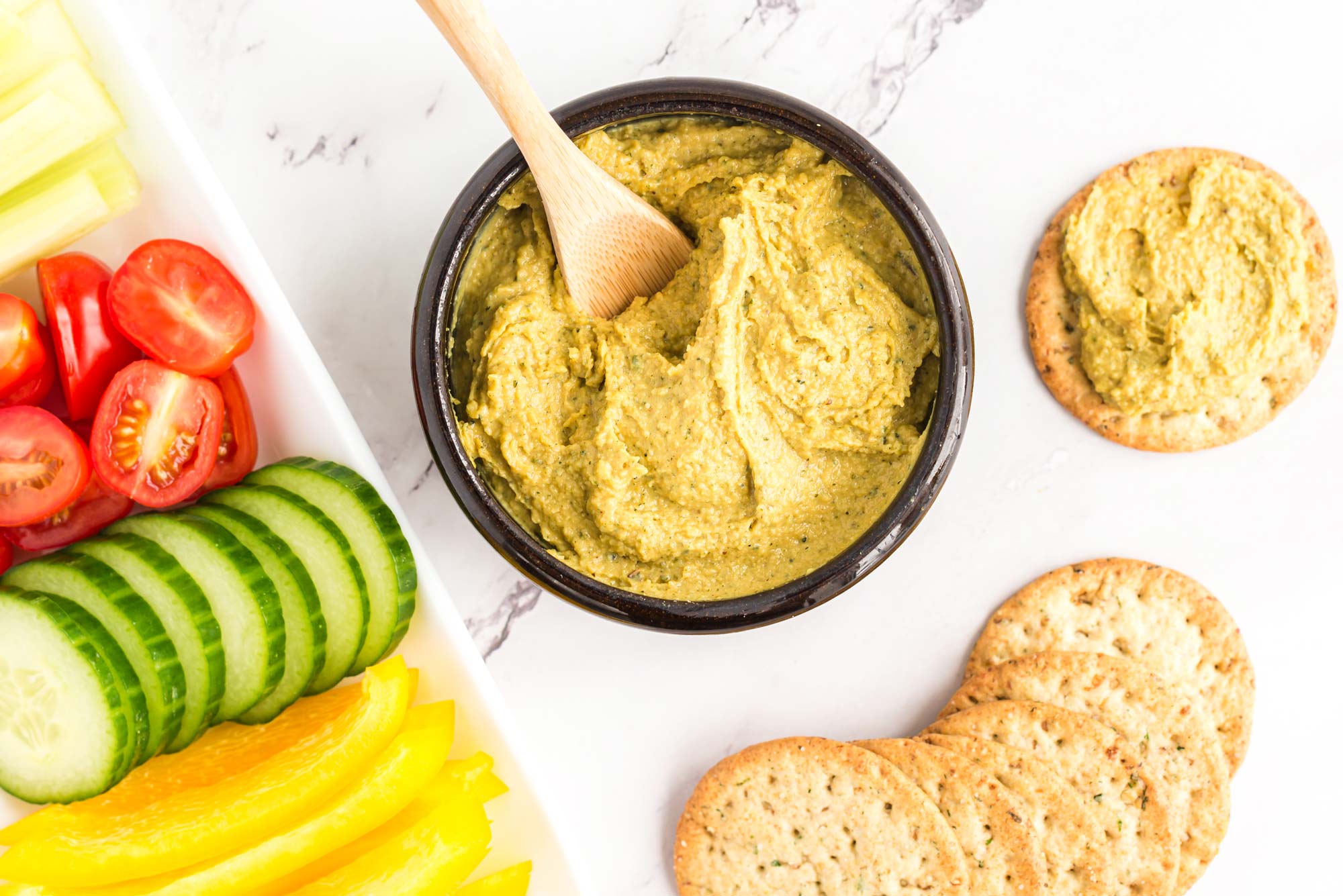
Who knew hemp seed could easily create a tasty and rich, plant-based “cheese”? This spread uses only five nutritious ingredients and requires no soaking or baking. The nutritional yeast gives it a cheesy taste, the miso lends an umami flavor, and hemp offers a sweet, nutty essence. The nutrition analysis for this cheesy topper is pretty impressive too, including being a good source of B vitamins, zinc, iron, and selenium. It also has five grams of fiber per two tablespoon serving!
At the Heart of the Hemp Seed
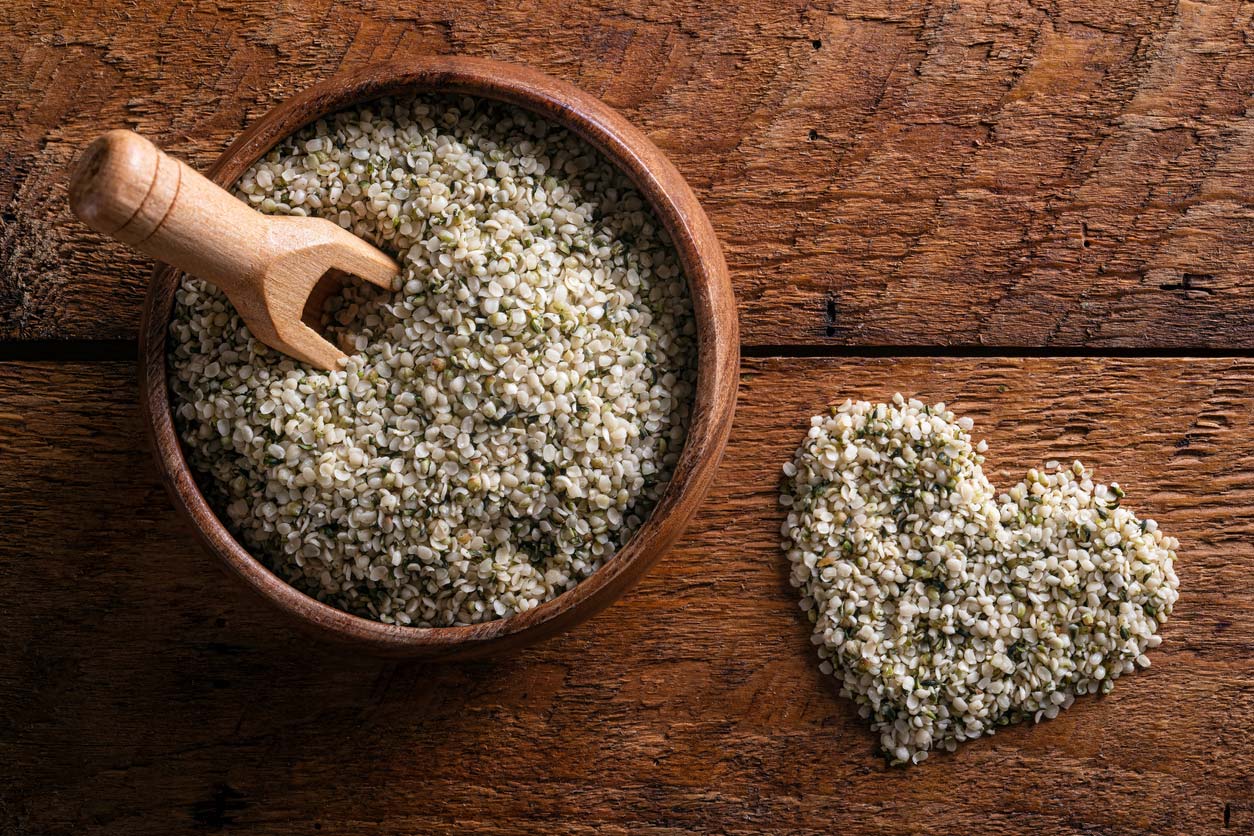
Hemp seeds are highly nutritious and may have a number of health benefits. Plus, they’re a long-lasting kitchen staple that can be used in just about any healthy recipe. Now that hemp is legal to grow again, hopefully more health researchers will dive in to tell us more about the benefits of the wonderful, versatile hemp seed.


That was good read. Didn’t really know about Hempseeds but now it’s clear.
Thanks
LikeLiked by 1 person
I specifically like CBD Isolate Capsules because they do not contain any THC so I have peace of mind in the case that I have to take a drug test for work because I work for Border Patrol.
LikeLike
The aroma, flavor, and visual aspects of green tea combine to create hundreds of exciting possibilities to explore, allowing you to engage in ancient traditions from around the planet as you sip your cup of tea.
LikeLike
I think other website proprietors should take this website as an model, very clean and fantastic user friendly style and design, as well as the content. You are an expert in this topic!
LikeLiked by 1 person
Very good post! We are linking to this particularly great post on our website. Keep up the great writing.
LikeLike
You have made some really good points there. I checked on the internet for more info about the issue and found most people will go along with your views on this site.
LikeLike
Hello there! I simply want to give you a big thumbs up for your excellent info you have right here on this post. I’ll be coming back to your blog for more soon.
LikeLike
Sweet blog! I found it while surfing around
on Yahoo News. Do you have any tips on how to get listed
in Yahoo News? I’ve been trying for a while but I never seem to get there!
Thanks
LikeLiked by 1 person